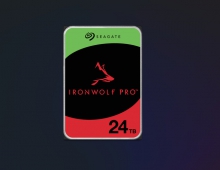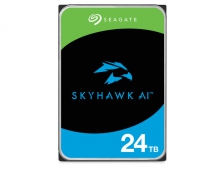
Hard Disk Drive Shipments to Plunge 30 Percent in Q4
The devastating floods in Thailand will cause the worldwide hard disk drive (HDD) market to contract by nearly 30 percent in the fourth quarter, resulting in extensive HDD shortages affecting some of the biggest PC makers, according to IHS iSuppli.
Global HDD shipments in the fourth quarter are projected to reach approximately 125 million units, down 28.6 percent from 175 million units in the third quarter. That means shipments for the final quarter of the year would match the industry low three years ago during the third quarter of 2008, when the market tanked at the height of the recession.
More than 25 percent of the world's HDD assembly facilities are located in Thailand's flooded areas. The two worst-hit HDD companies are Western Digital with 37,000 employees and approximately 60 percent of that company's total HDD capacity; and Toshiba, with 5,900 employees and about 50 percent capacity. Together, the two players account for 25 percent of the overall HDD market, as well as 45 percent of the mobile PC HDD market.
Already, Western Digital has said it expects revenue in the fourth quarter to fall to anywhere between $1.05 billion and $1.25 billion - down by more than half from $2.6 billion in the third quarter. The company also expects to lose another $270 million in the fourth quarter. For its part, Toshiba is anticipating a big loss in the fourth quarter - it's not saying how much - after shipments in the third quarter of 22.2 million units.
The projected loss of shipments for Western Digital could prove a boon in the short term for Seagate Technology, whose facility in Thailand escaped damage, and boost the No. 2 HDD player to the top after trailing Western Digital in total shipments for several quarters. Nonetheless, Seagate is projecting a shortage in other components because of disruptions to the supply chain, and is estimating anywhere from flat HDD shipments in the fourth quarter to a decline of up to 21 percent.
The loss in shipments throughout the industry will result in a dearth of both desktop and mobile hard disk drives for computers?a period of lack that will last throughout the final quarter of the year and extend well until the next year, IHS believes. The shortages will arise from the loss of manufacturer capability, as well as from scarcity in various components such as HDD disk media and substrates, HDD motors and HDD suspensions - all vital parts of the HDD ecosystem.
Among the PC makers that will be affected by the HDD shortage are powerhouses like Dell, Apple, Asustek, Hewlett-Packard and Lenovo.
Dell, for instance, has confirmed that the company's prospects will be seriously impacted this year and fall on the bottom end of its revenue outlook because of anticipated increased HDD pricing. The HDD shortage also will be one factor compromising the company's ability to produce more PCs.
For its part, Apple warns that its Macintosh computer products will be most affected by the Thailand disaster, likely to show up next quarter. Giant Taiwanese manufacturer Asustek also expects to see shipments decrease from 6.3 million in the third quarter to 6.0 million in the fourth.
Meanwhile, HP - yet to report its earnings - has said it expects to secure the hard drives it needs, but there are signs that the HDD shortage and expected higher prices may become painful for the company in the coming quarter. China-based Lenovo likewise has acknowledged the Thailand floods will impact the global supply of hard disk drives, and that it will take whatever action is necessary to mitigate any injurious fallout.
More than 25 percent of the world's HDD assembly facilities are located in Thailand's flooded areas. The two worst-hit HDD companies are Western Digital with 37,000 employees and approximately 60 percent of that company's total HDD capacity; and Toshiba, with 5,900 employees and about 50 percent capacity. Together, the two players account for 25 percent of the overall HDD market, as well as 45 percent of the mobile PC HDD market.
Already, Western Digital has said it expects revenue in the fourth quarter to fall to anywhere between $1.05 billion and $1.25 billion - down by more than half from $2.6 billion in the third quarter. The company also expects to lose another $270 million in the fourth quarter. For its part, Toshiba is anticipating a big loss in the fourth quarter - it's not saying how much - after shipments in the third quarter of 22.2 million units.
The projected loss of shipments for Western Digital could prove a boon in the short term for Seagate Technology, whose facility in Thailand escaped damage, and boost the No. 2 HDD player to the top after trailing Western Digital in total shipments for several quarters. Nonetheless, Seagate is projecting a shortage in other components because of disruptions to the supply chain, and is estimating anywhere from flat HDD shipments in the fourth quarter to a decline of up to 21 percent.
The loss in shipments throughout the industry will result in a dearth of both desktop and mobile hard disk drives for computers?a period of lack that will last throughout the final quarter of the year and extend well until the next year, IHS believes. The shortages will arise from the loss of manufacturer capability, as well as from scarcity in various components such as HDD disk media and substrates, HDD motors and HDD suspensions - all vital parts of the HDD ecosystem.
Among the PC makers that will be affected by the HDD shortage are powerhouses like Dell, Apple, Asustek, Hewlett-Packard and Lenovo.
Dell, for instance, has confirmed that the company's prospects will be seriously impacted this year and fall on the bottom end of its revenue outlook because of anticipated increased HDD pricing. The HDD shortage also will be one factor compromising the company's ability to produce more PCs.
For its part, Apple warns that its Macintosh computer products will be most affected by the Thailand disaster, likely to show up next quarter. Giant Taiwanese manufacturer Asustek also expects to see shipments decrease from 6.3 million in the third quarter to 6.0 million in the fourth.
Meanwhile, HP - yet to report its earnings - has said it expects to secure the hard drives it needs, but there are signs that the HDD shortage and expected higher prices may become painful for the company in the coming quarter. China-based Lenovo likewise has acknowledged the Thailand floods will impact the global supply of hard disk drives, and that it will take whatever action is necessary to mitigate any injurious fallout.





















